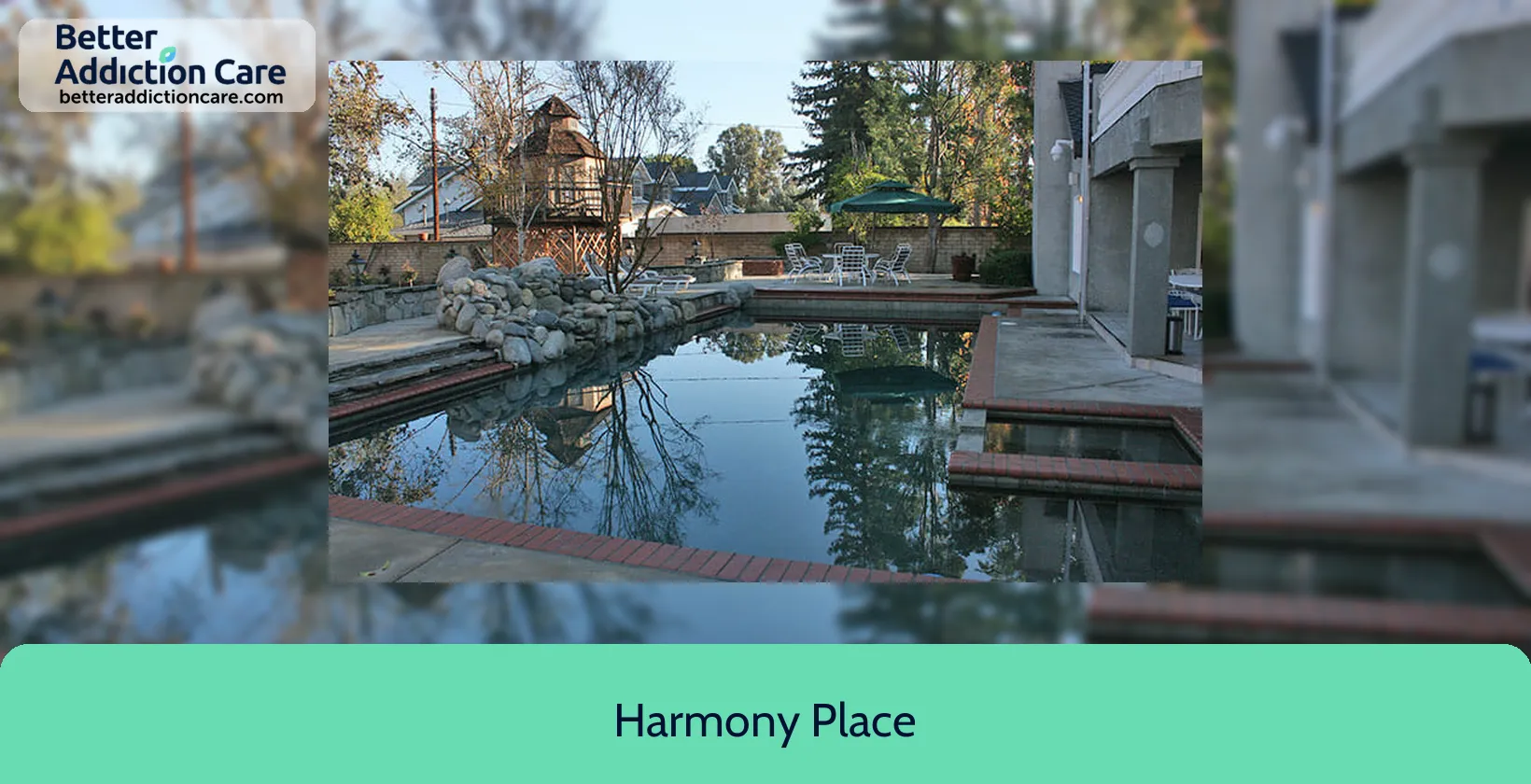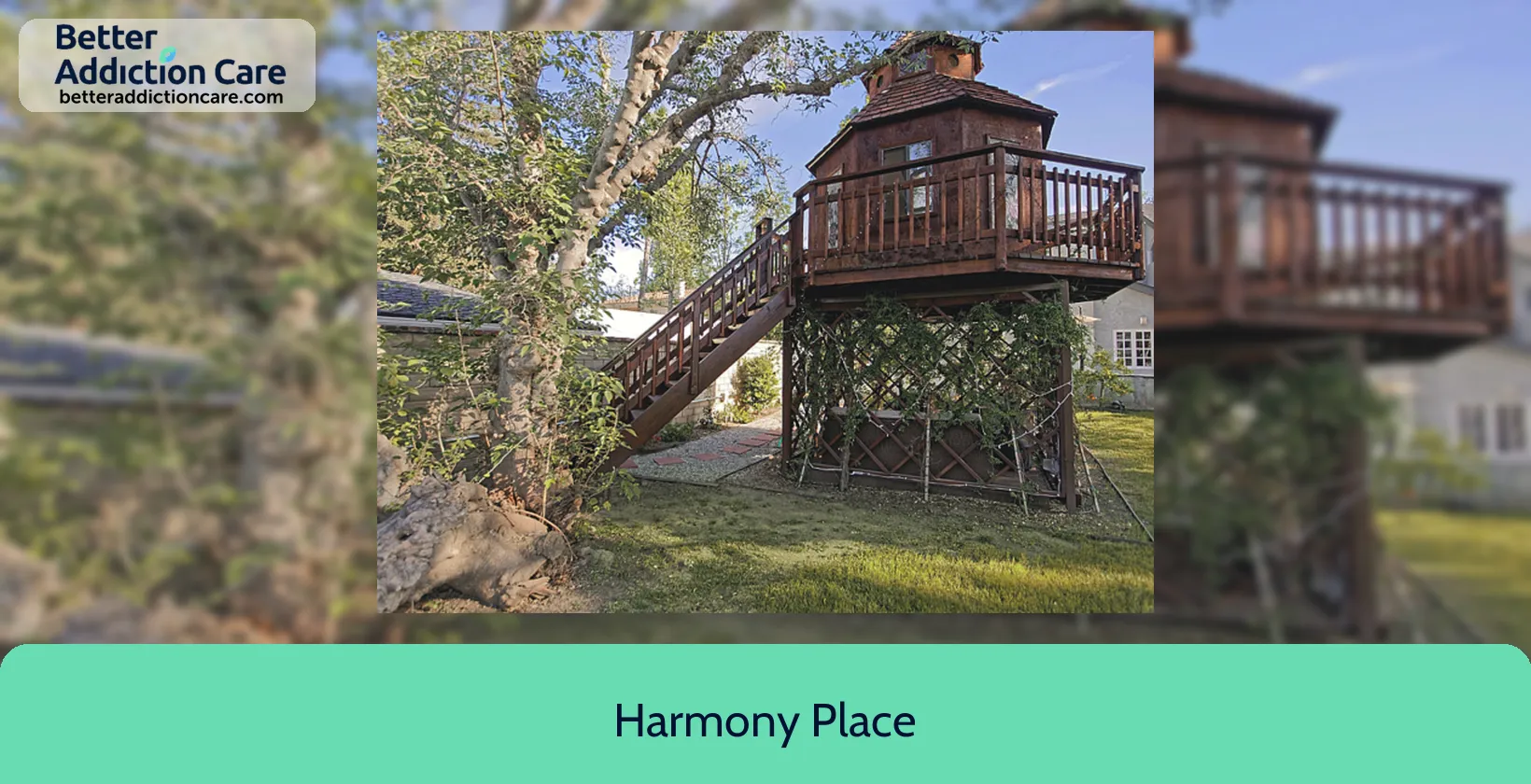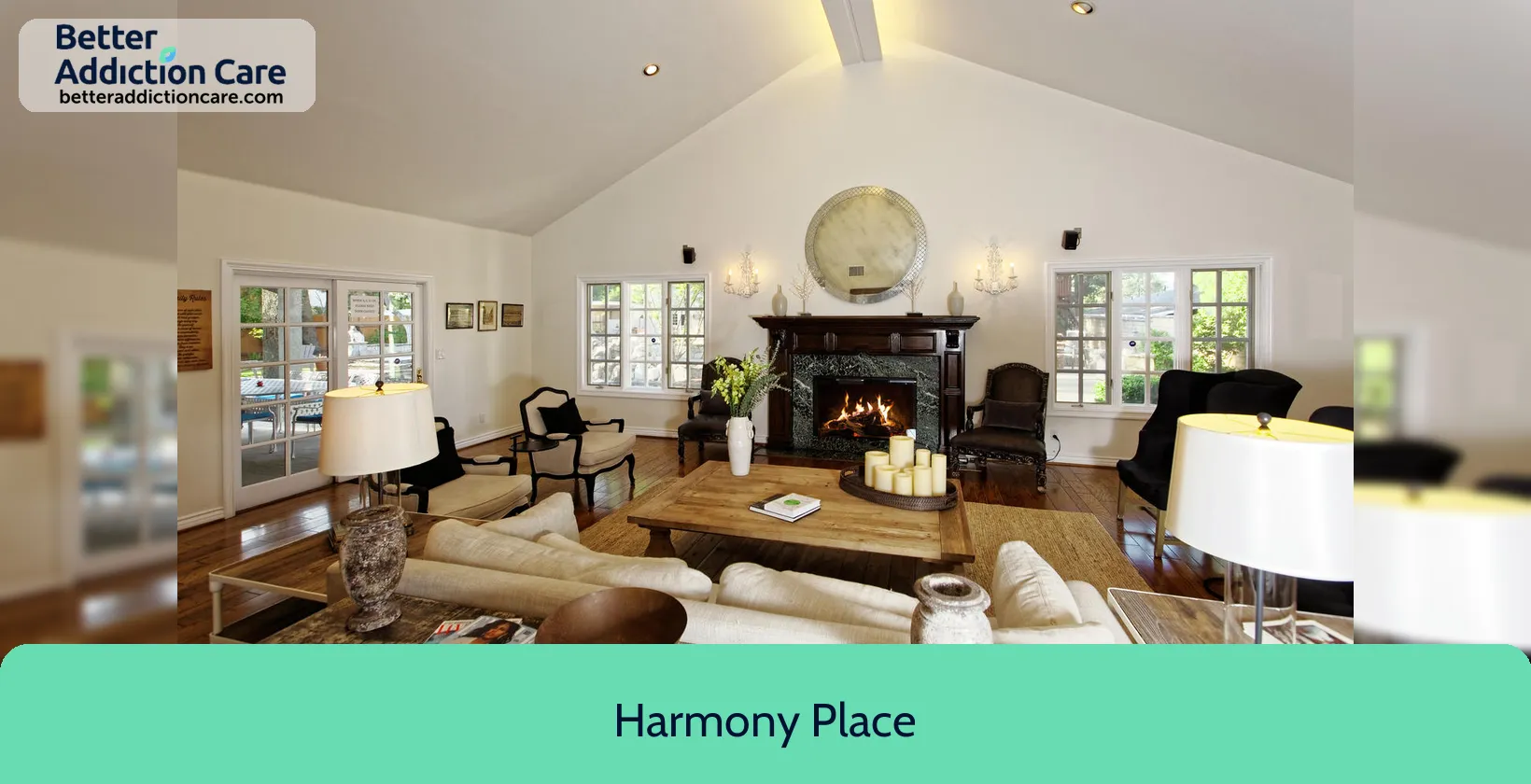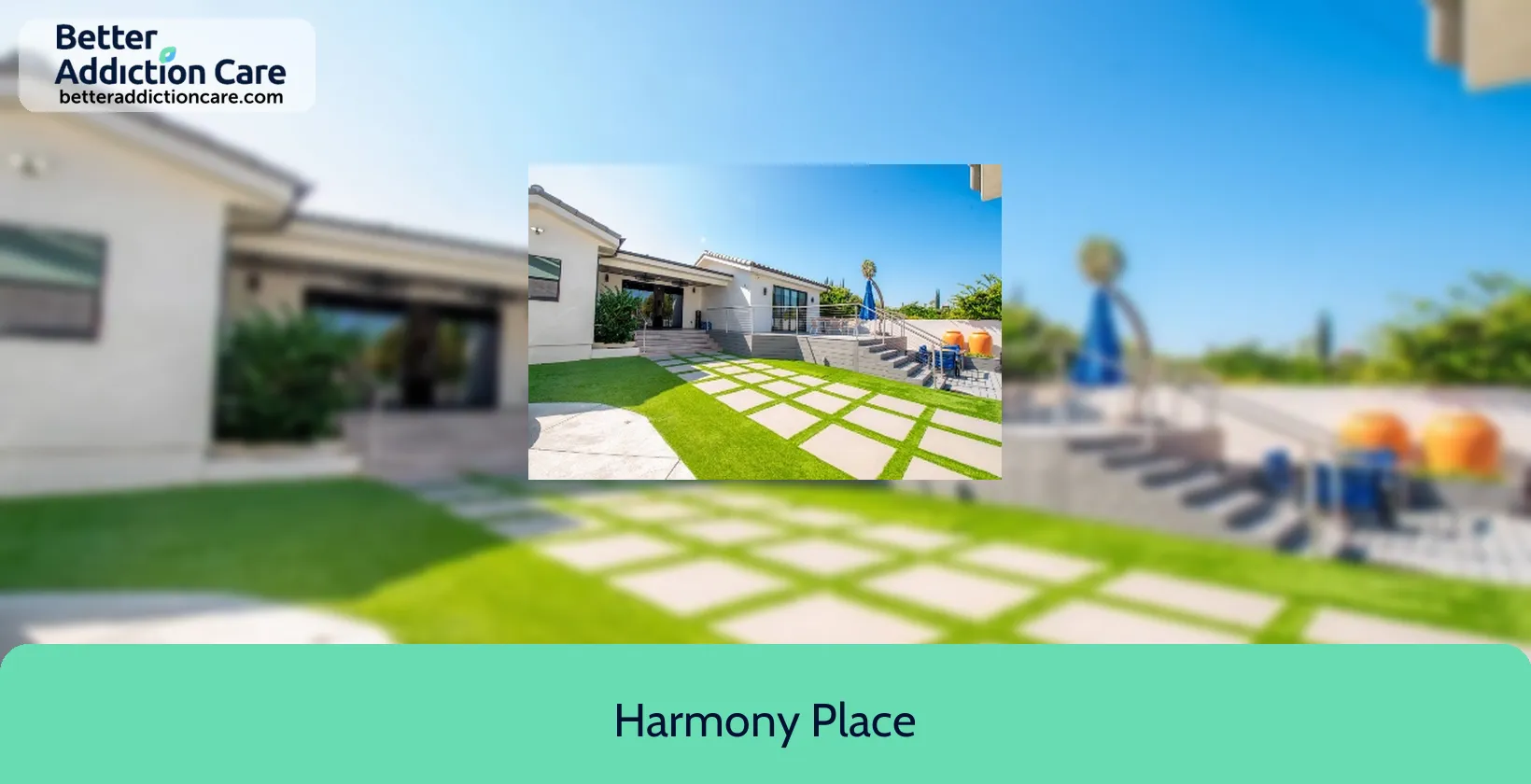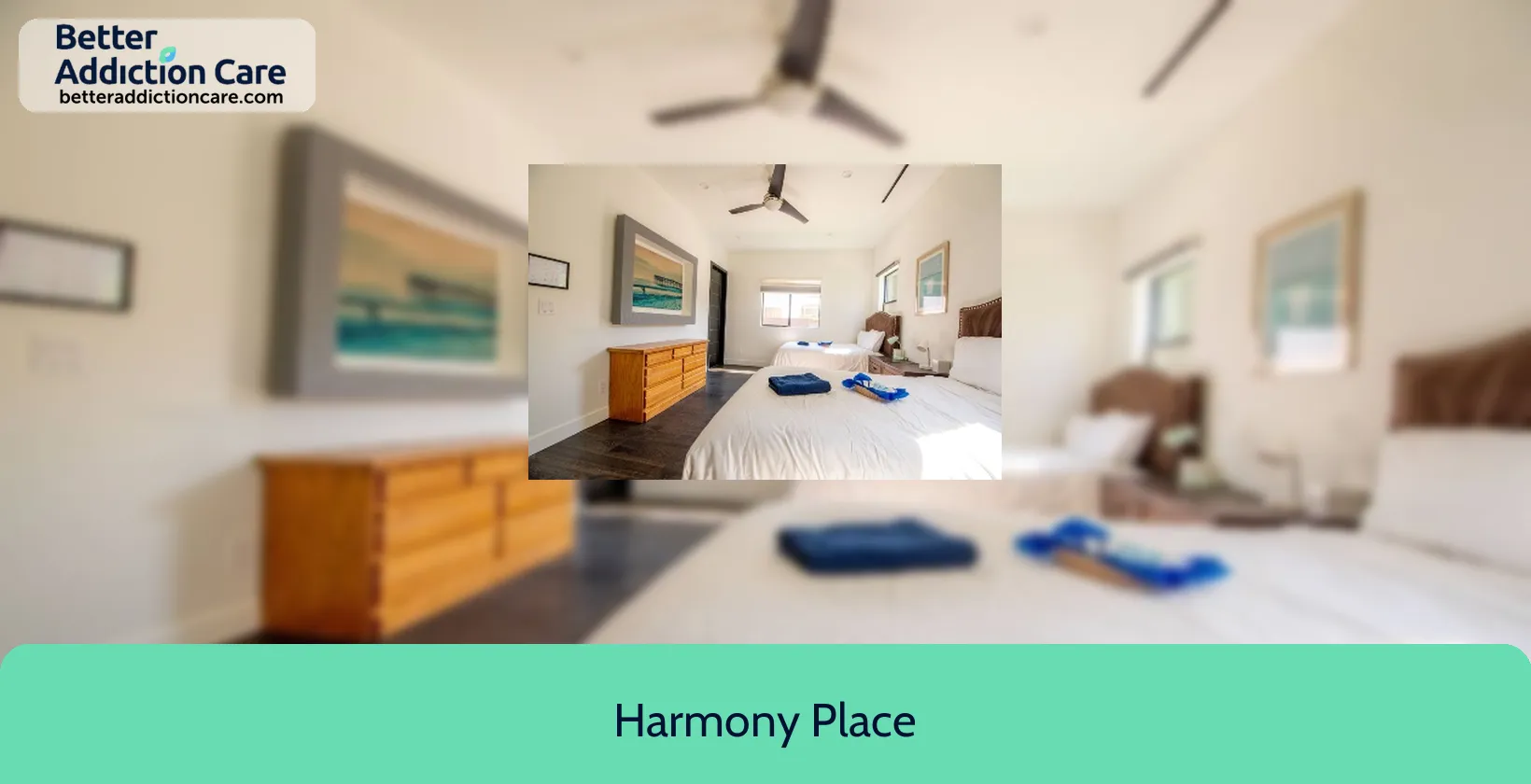Harmony Place
Overview
Harmony Place, located in Woodland Hills, California, is a comprehensive treatment center dedicated to addressing drug, alcohol, and opioid addiction, as well as mental health disorders and co-occurring conditions for men and women aged 18 and older. The center provides a wide range of treatment options, tailored to meet the unique needs of each individual, ensuring a holistic approach to recovery.
The center offers FDA-approved Medically Assisted Treatment (MAT) Detox, an Evening Intensive Outpatient Program (IOP) for those who need to balance treatment with daily responsibilities, a Regular Intensive Outpatient Program, a Partial Hospitalization Program (PHP), and an Inpatient Program with flexible durations of 21, 30, 60, 90, or 180 days, depending on the individual's needs. Harmony Place also emphasizes the importance of long-term support, offering a robust aftercare program that includes access to sober living homes and ongoing therapy.
Recognizing the diverse needs of its clientele, Harmony Place has developed specialized programs to provide targeted support. These include an LGBTQ+ friendly program, a men’s specialized program, and a women’s specialized program, all designed to address the unique challenges faced by these groups in the context of addiction and mental health treatment. The center employs a variety of evidence-based therapies to support the recovery process. These include Individual Therapy, Group Therapy, Family Therapy, Cognitive Behavioral Therapy (CBT), Dialectical Behavior Therapy (DBT), and Eye Movement Desensitization and Reprocessing (EMDR). In addition to these core therapies, Harmony Place offers holistic approaches such as Art Therapy and Music Therapy, which provide creative outlets for expression and healing.
Harmony Place's commitment to excellence in care is reflected in its numerous accreditations. The center is accredited by The Joint Commission, the Better Business Bureau (BBB), the National Association of Addiction Treatment Providers (NAATP), LegitScript, the Employee Assistance Professionals Association (EAPA), and the Department of Health Care Services (DHCS). These accreditations underscore Harmony Place's dedication to maintaining the highest standards of safety, ethics, and effectiveness in addiction and mental health treatment.
Harmony Place at a Glance
Payment Options
- Private health insurance
- Cash or self-payment
- Monthly
- Federal military insurance (e.g. TRICARE)
- Financial aid
Assessments
- Comprehensive mental health assessment
- Comprehensive substance use assessment
- Complete medical history/physical exam
Age Groups
- Adults
- Young adults
Operation
- Private for-profit organization
Highlights About Harmony Place
7.55/10
With an overall rating of 7.55/10, this facility has following balanced range of services. Alcohol Rehabilitation: 8.00/10, Drug Rehab and Detox: 6.31/10, Insurance and Payments: 7.60/10, Treatment Options: 8.30/10.-
Treatment Options 8.30
-
Alcohol Rehabilitation 8.00
-
Insurance and Payments 7.60
-
Drug Rehab and Detox 6.31
Accreditations
The Joint Commission:

The Joint Commission's addiction and behavioral health accreditation signifies a facility's commitment to high-quality care. It involves rigorous evaluations and assessments of clinical practices, ensuring effective, evidence-based treatment. Accreditation showcases a dedication to continuous improvement and patient safety, instilling trust among patients, families, and healthcare professionals. It's a mark of excellence in addiction and behavioral health care.
Effective date: 09/25/2015
Registration: 571424
NAATP:

The NAATP accreditation is a recognized certification for addiction and behavioral health facilities. This accreditation serves as a validation of a center's commitment to maintaining high standards in the field. It signifies that the facility has met specific criteria and requirements set by NAATP, ensuring that individuals seeking addiction and behavioral health services can expect a level of quality and professionalism in their care. NAATP accreditation is a notable benchmark for facilities striving to provide effective and ethical treatment within this critical healthcare sector.
SAMHSA certification for opioid treatment program (OTP):
SAMHSA's Opioid Treatment Programs (OTPs) accreditation is a rigorous recognition process that signifies an OTP's commitment to providing high-quality care for individuals dealing with opioid use disorders. It assures patients, families, and the community that the program adheres to evidence-based practices, employs qualified staff, and maintains a safe treatment environment. This accreditation is a symbol of quality and accountability, offering confidence in the program's ability to support individuals on their path to recovery from opioid addiction.
State department of health:

Government agencies issue State Licenses, granting rehabilitation organizations permission to operate their businesses legally within specific geographic regions. The licenses needed for legal operation are typically determined by the type of rehabilitation program offered by a facility and its physical location.
Registration: 190879AP
LegitScript:

LegitScript certification is awarded to programs and services that successfully complete a stringent application process initiated in 2018. This process ensures eligibility for credible providers offering mental health and co-occurring substance abuse treatment within Google's network while complying with HIPAA privacy laws.
Treatment At Harmony Place
Treatment Conditions
- 24-Hour Clinical Care
- Mental health treatment
- Alcoholism
- Opioid Addiction
- Substance use treatment
Care Levels
- Hospital inpatient/24-hour hospital inpatient
- Luxury Treatment
- Detoxification
- Aftercare
- Halfway house
Treatment Modalities
- 12-step facilitation
- Family counseling
- Individual psychotherapy
- Dialectical Behavior Therapy
- Group counseling
Ancillary Services
Additional Services
- Pharmacotherapies administered during treatment
- Holistic Treatment
Pharmacotherapies
- Lofexidine
- Heroin
- Cocaine
- Marijuana
Special Programs
- Persons with eating disorders
- Clients who have experienced trauma
Get Help Now
Common Questions About Harmony Place
Contact Information
Other Facilities in Los Angeles

6.50

6.74

6.85

6.94

6.94

6.94

6.94

6.88
DISCLAIMER: The facility name, logo and brand are the property and registered trademarks of Coastal Recovery Comprehensive Treatment Center, and are being used for identification and informational purposes only. Use of these names, logos and brands shall not imply endorsement. BetterAddictionCare.com is not affiliated with or sponsored by Coastal Recovery Comprehensive Treatment Center.

